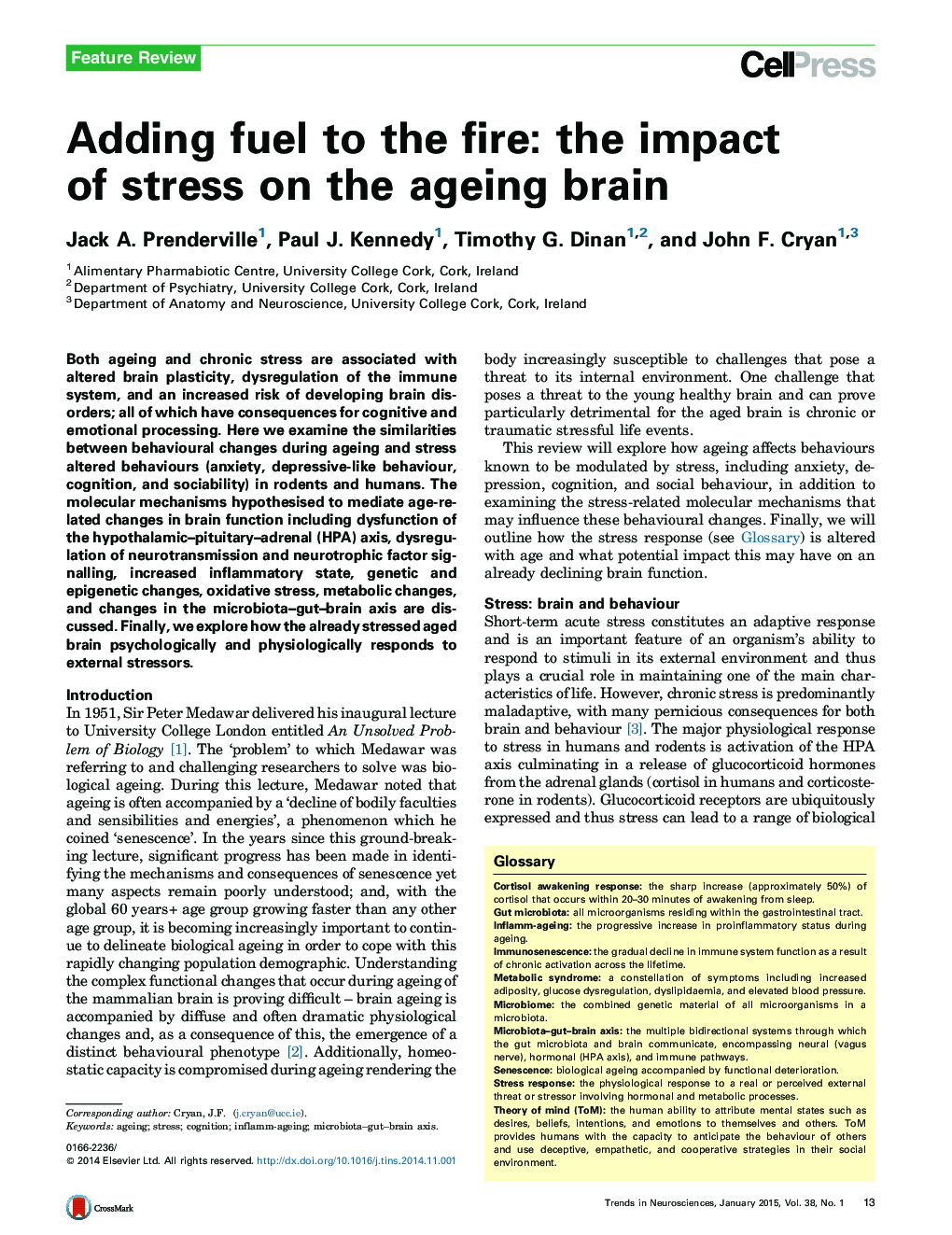| Article ID | Journal | Published Year | Pages | File Type |
|---|---|---|---|---|
| 4354183 | Trends in Neurosciences | 2015 | 13 Pages |
•Chronic stress and ageing have a similar impact on the brain at the behavioural and molecular level.•During ageing, chronic stress may have devastating effects on the already vulnerable brain.•The microbiota–gut–brain axis is a novel therapeutic target to decelerate age-related decline.
Both ageing and chronic stress are associated with altered brain plasticity, dysregulation of the immune system, and an increased risk of developing brain disorders; all of which have consequences for cognitive and emotional processing. Here we examine the similarities between behavioural changes during ageing and stress altered behaviours (anxiety, depressive-like behaviour, cognition, and sociability) in rodents and humans. The molecular mechanisms hypothesised to mediate age-related changes in brain function including dysfunction of the hypothalamic–pituitary–adrenal (HPA) axis, dysregulation of neurotransmission and neurotrophic factor signalling, increased inflammatory state, genetic and epigenetic changes, oxidative stress, metabolic changes, and changes in the microbiota–gut–brain axis are discussed. Finally, we explore how the already stressed aged brain psychologically and physiologically responds to external stressors.
